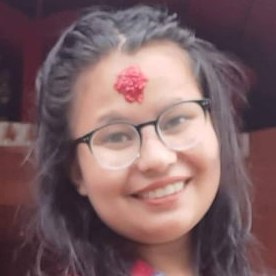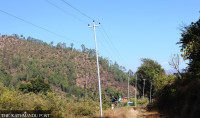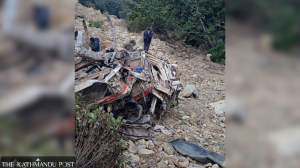Karnali Province
Karnali doctors receive training on safe abortion
The Karnali Provincial Hospital organised the training in a bid to reduce abortion-related deaths.
Tripti Shahi
In a bid to reduce maternal deaths due to unsafe abortion practices, the Karnali Provincial Hospital organised a training for doctors from April 9-18.
According to the 2021 census of Nepal, around 172 women die per 100,000 live births in the Karnali province.
“The number of women and teenage girls who die due to unsafe abortions in Karnali is markedly high. Unsafe abortion practices are still prevalent in the region mostly due to a lack of awareness coupled with lack of access to well-equipped hospitals in remote areas,” said Sakuntala Sapkota, senior nursing officer of the hospital. “Illiteracy and the desire for a male child also contribute to unsafe abortion practices in Karnali.”
Dr Kailash Lama of the Humla District Hospital and Dr Bhupendra Bajgai of the Jajarkot Hospital who had so far received no formal training on abortion services, were among the 10 doctors who received the training.
Dr Dumbar Khadka, director of the Karnali Provincial Hospital, says the training aims to help doctors like Lama and Bajgai provide safe abortion services.
“Health posts in rural areas mostly send patients to district hospitals so it is important that doctors at district hospitals arm themselves with proper knowledge of crucial medical services like abortion,” he said. “In the past couple of years, due to a lack of effective monitoring, illegal pharmacies and private clinics have been found performing abortion. But these are unsafe practices and jeopardise the health of the mother.”
According to him, the use of morning-after pills without a prescription is also increasing in rural Karnali. “Misuse of abortion pills has a long-term effect on women’s health. We aim to curb this wide use of over-the-counter drugs,” said Khadka.
As per the Right to Safe Motherhood and Reproductive Health Act, 2018, abortion is permitted up to 12 weeks of gestational age at the request of the pregnant woman; up to 18 weeks of gestational age in the case of rape or incest and at any gestational age if the pregnancy is detrimental to the woman’s health and life or if there is foetal impairment.
According to Sapkota, most people choose illegal clinics and pills for abortion when they do not meet the requirements for a safe abortion. “If there was no stigma attached to abortion then women wouldn’t have to go through the trouble of taking over-the-counter pills,” she said. “On the other hand, women in the villages are forced to undergo sex-selective abortions through illegal practices which put their lives at risk.”
Gynaecologist Dr Keshar Dhakal was the training coordinator while Dr Amit Singh was the training instructor for the programme.
According to Dhakal, this is the first time training on safe abortion has been organised for doctors in the province.




 21.24°C Kathmandu
21.24°C Kathmandu












